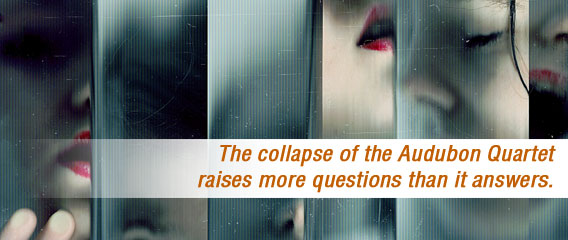Breaking Up Is Hard (And Expensive) To Do
The ugly side of classical music’s business has been in the news quite a bit this past year, such as the coverage related to labor problems in St. Louis and Baltimore. However, there’s one example of how small ensembles, such as a quartet or trio, are beginning to realize there’s much more to making music than making music. The Audubon Quartet saga started when the members began to quarrel over money and control. They past the point of no return in February 21, 2000 when three of the members presented their first … Continue Reading













